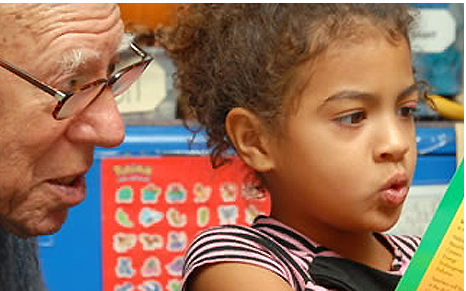The Coach’s influence off the field
 By ELIZABETH BERNSTEIN Wall Street Journal
By ELIZABETH BERNSTEIN Wall Street Journal
Aug. 1, 2016 1:52 p.m. ET
There is a special man who’s changed my life recently, and he says these things to me:
“You rock!”
“Great job in difficult circumstances.”
“You should be really proud of yourself.”
He’s my scuba instructor.
A great sports instructor or coach builds us up, but also teaches us important lessons of emotional management, such as confidence, perseverance, resilience and how to conquer fear and anxiety. Many times, these lessons have a permanent impact on our mind-set and attitude well beyond the playing field.
These teachings are often long-lasting, sports psychologists say, because sports are a microcosm of the larger world—with goals, competition, a game plan, results and feedback. Most people participate in a sport voluntarily, so they are open to learning. There is emotional intimacy and trust in a good coach-student relationship. And, perhaps most important, the lessons are simple and immediately reinforced. “If you have a golf club in your hand, your coach tells you to twist a little to your left to adjust your swing, you do that and it works, that is a very powerful lesson,” says Jack J. Lesyk, director of the Ohio Center for Sport Psychology, in Cleveland, and a performance psychologist for the Cleveland Cavaliers.
My high school horseback riding coach, a former U.S. Army cavalry veteran we called “Sarge,” who served in both WWII and the Korean War, repeatedly told me: “Look down and you are going to land on the ground. Look where you want to go.” That lesson, central to a number of sports, including golf, skiing and surfing, became a life motto for me, reminding me to always look forward to my goals, to always look up with confidence.
What major lessons have others learned from sports? I asked around and here is what I heard:
Remember your seat.
Amy Starin, 53, took up competitive rowing with the Chicago Rowing Foundation after going through treatment for breast cancer. She learned from her coach to focus on her role within the larger team she supports. ENLARGE
Amy Starin, 53, took up competitive rowing with the Chicago Rowing Foundation after going through treatment for breast cancer. She learned from her coach to focus on her role within the larger team she supports. PHOTO: AMY STARIN
Amy Starin, a 53-year-old social worker from Oak Park, Ill., took up rowing after she finished treatment for breast cancer several years ago and now rows competitively in her age group with the Chicago Rowing Foundation. Her coach stresses teamwork and individual contribution, she says, and repeatedly tells the rowers: “Every seat has a job that no one else in the boat can fill. Remember your seat.”
Ms. Starin says this advice has helped her understand that her role on any team, whether in a rowing shell, a work meeting or her family, is to do her part as well as possible and focus on her performance and development, not the strengths and weaknesses of others. “The assumption is that if the boat is not doing well there has to be something I can do better in my seat to contribute to the outcome,” she says.
Fence to fence, not to win.
Jenny Dorsey was a competitive fencer as a teenager, competing in the national circuit, the North American Cups and the Junior Olympics. After she lost an important match 15-14, angrily tore off her gear and was crying on the sideline, her coach, whom she considered “a father figure,” asked: “Were you fencing to fence or were you fencing to win? Because if you’re fencing to win you never will.”
Jenny Dorsey was a fencer and competed in the Junior Olympics as a teen. She learned to focus less on winning and more on personal achievement from her coach. ENLARGE
Jenny Dorsey was a fencer and competed in the Junior Olympics as a teen. She learned to focus less on winning and more on personal achievement from her coach. PHOTO: MYPHUONG LE
Ms. Dorsey, 25, is now a chef and culinary consultant in New York. ENLARGE
Ms. Dorsey, 25, is now a chef and culinary consultant in New York. PHOTO: ROBIN LAM
Ms. Dorsey, a 25-year-old chef and culinary consultant in New York, says she learned that day that passion, growth and accomplishment are the real spoils of victory—and it is impossible to get anywhere without them. “In fencing and in life, if you only drive toward an end result without loving and acknowledging the journey you will never win,” she says. “Even if you do, that win is only an empty shell because you’ve traded in substance for a trophy.”
Fatigue will not be a factor.
Brandt Johnson played basketball at Williams College in Williamstown, Mass., and later as a member of the Harlem Globetrotters opposition team and professionally in Europe. At Williams, he says, his coach made the players practice sprints over and over, sometimes nonstop for hours, calling out: “Fatigue will not be a factor in our performance.”
“He wanted us to have our bodies and minds conditioned so we were less likely to get tired,” says Mr. Johnson, 50, who co-owns a communication-skills training firm in New York with his wife. “While we may have limitations as an athlete or a person doing what we do, if we’re prepared, these things won’t stop us.”
Brandt Johnson, now 50, played basketball at Williams College in the mid-1980s. He says he learned from his college coach to condition himself, ignore fatigue and persevere in his work. ENLARGE
Brandt Johnson, now 50, played basketball at Williams College in the mid-1980s. He says he learned from his college coach to condition himself, ignore fatigue and persevere in his work. PHOTO: LEAH LATELLA/THE WALL STREET JOURNAL; WILLIAMS COLLEGE ARCHIVES (2)
Mr. Johnson says he used this advice as a young investment banker preparing analysis for his bosses, when he decided to return to basketball after working in finance, and now when preparing to meet with clients of his business. Recently, while traveling to Florida to meet with 20 corporate executives for a three-hour training seminar he memorized all their names and bios on the plane. “The commitment to doing what has to be done for the task at hand has stayed with me,” he says.
Be proud.
When Mike Seyfer opened the Gazette in Cedar Rapids recently, he was saddened to see the obit of his former high school basketball coach. That got him thinking about a frigid night in February, 1964, when he was a sophomore and his team lost an away game in Moline, Ill., after being 15-1 for the year. After the players dejectedly piled onto the bus for the 75-mile ride back home, the coach climbed on, closed the door and shouted: “Get your heads up fellas! You all played a great game and competed to the final buzzer and I could not be more proud of you.”
Mike Seyfer, center, 68, says he learned to follow through and complete tasks 100% from his high school basketball coach after a tough game in 1964. The retired investment adviser now coaches young baseball players. ENLARGE
Mike Seyfer, center, 68, says he learned to follow through and complete tasks 100% from his high school basketball coach after a tough game in 1964. The retired investment adviser now coaches young baseball players. PHOTO: MICHAEL SEYFER
Mike Seyfer’s high school basketball coach Jim Lockett recently died. Here, Mr. Lockett diagrams a play. ENLARGE
Mike Seyfer’s high school basketball coach Jim Lockett recently died. Here, Mr. Lockett diagrams a play. PHOTO: MICHAEL SEYFER
Mr. Seyfer, 68, who splits his time between Cedar Rapids, Iowa, and Wesley Chapel, Fla., is a retired broker and investment adviser who now plays shuffleboard on the competitive circuit. His coach’s advice to compete “100% and when the game, task, meeting or project is completed, be proud you gave it your best effort, win, lose or draw” has always stayed with him, he says.
“It’s important going forward for your confidence and to be successful,” Mr. Seyfer says. “If you always look in the rearview mirror, it will be detrimental for your performance in the future.”
I’ve been scuba diving for three years, taking a number of advanced certification classes. When I was first learning to dive, I had a panic attack on the surface. I jumped off the boat into a big wave and, once underwater, thought the boat was going to slam down on me. Within seconds, I had only two thoughts in my head: “I’m going to drown” and “I’m an idiot.”
Luckily, my instructor, James Paddon—always unruffled and positive—was with me. He calmed me down by looking directly in my eyes and repeatedly telling me that I was OK. We finished the dive, and later discussed what happened and how to prevent a repeat. In midair, I had heard someone on the boat comment that the waves were “really, really big.” At that moment, I started to tell myself very bad things.
Here’s the lesson I learned from James that day, which I’ve since used in many other areas in my life, including when I’m on deadline or giving a speech to an intimidating crowd: You need to arrest a negative thought immediately, in midair. Remind yourself that you are competent and know what you’re doing. Slow your breath










